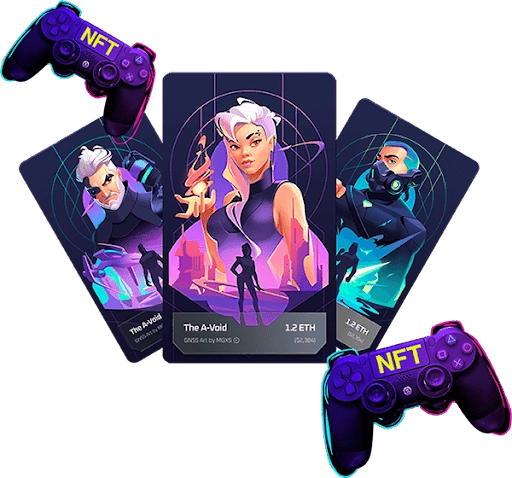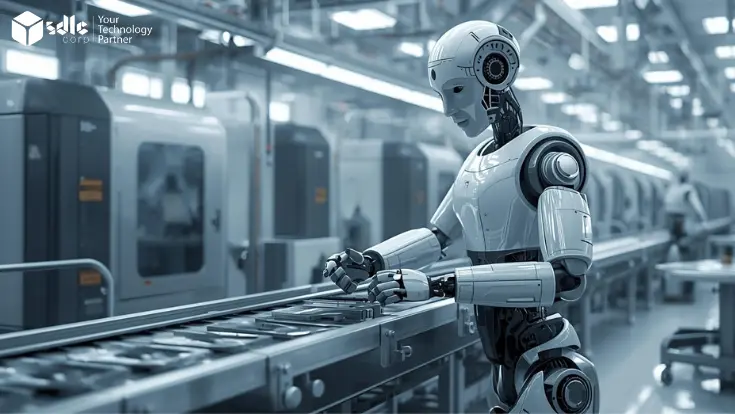What Are Play-to-Earn Games?
Emerging concepts in the gaming sector include Play-to-Earn (P2E) games, where participants can receive rewards beyond the game. This differs from traditional gaming, where players invest time and money with no tangible return. P2E games allow players to turn in-game units and assets into cryptocurrencies or non-fungible tokens (NFTs) through blockchain technology, making the gaming experience both exciting and financially rewarding.
As the demand for P2E games grows, partnering with a reputable P2E game development company becomes essential. These companies specialize in creating engaging experiences that leverage blockchain, ensuring players can earn as they play. Selecting the right P2E development partner can enhance a game’s quality, drive profitability, and foster a dedicated player community. This model is at the forefront of gaming’s evolution, unlocking new possibilities in the gaming landscape.

How Do P2E Games Work?
Blockchain Technology
Play-to-earn games integrate blockchain technology, providing developers with immutability and secure ownership tracking. Players own in-game items as non-fungible tokens (NFTs) and can trade these items globally on designated platforms.
Earning Mechanisms
Players can earn rewards by participating in activities such as:
- Accomplishing specific tasks and mission objectives
- Engaging in battles or contests
- Trading virtual goods
- Participating in social and community activities
Cryptocurrency Integration
Many P2E games have native cryptocurrencies that players can trade on various coin-exchange platforms. Players can convert their in-game earnings into real currency or reinvest them in the game.
Benefits of P2E Games
- Monetary Benefits: Successful players can significantly increase their earnings, especially in areas with limited job opportunities.
- Actual Ownership: Players own in-game assets, which they can trade on secondary markets.
- Community Involvement: P2E games are designed to build strong communities, encouraging interaction and collaboration among players.

Challenges of P2E Games
- Volatility: The value of in-game assets and cryptocurrencies can fluctuate, affecting players’ earnings.
- Regulatory Concerns: Increased scrutiny from authorities may impact game operations and player profits.
- Scams and Security Risks: The crypto environment is prone to scams, so players should carefully select games to avoid potential losses.
Popular P2E Games
- Axie Infinity: Features combat and breeding gameplay with “Axies” as pets; players earn AXS and SLP tokens.
- The Sandbox: A voxel-based game where players create and monetize experiences using SAND tokens.
- Decentraland: A MANA-based platform focused on purchasing land and building in a virtual world with art and social elements.
- Gods Unchained: Allows players to earn cards and tokens by playing rather than purchasing card packs.
- Illuvium: An open-world RPG where players collect and battle monsters for ILV tokens.
- CryptoBlades: A role-playing game where players earn SKILL tokens by defeating enemies and crafting weapons.
- Splinterlands: A trading card game where players earn rewards by battling others and trading their cards.
- My Neighbor Alice: A building game that allows players to buy and build on virtual land, promoting creativity.
- Alien Worlds: A metaverse game where players mine for Trillium (TLM) and participate in governance.
- Battle of Guardians: A hybrid fighting game allowing players to earn rewards by trading characters and battling opponents.
P2E Game Development Services
For developers interested in creating P2E games, P2E game development services are essential. Typical services include:
- Blockchain Integration: Implementation of secure blockchain infrastructure for managing in-game items.
- Smart Contracts Development: Coding smart contracts to regulate game interactions and process transactions.
- NFT Marketplace Development: Creating a secure interface for players to exchange virtual assets.
- Game Design and Development: Assistance with game design, graphics, and user experience.
- Tokenomics Consultation: Guidance on designing a sustainable game economy that encourages player engagement.

Conclusion
Play-to-Earn games represent a transformative shift in the gaming industry, combining entertainment with financial opportunities. Both players and developers can explore this space by understanding the mechanics, benefits, and challenges of P2E games. Whether you are a player looking to earn or a developer seeking to create compelling blockchain games, the potential for innovation and engagement is immense.
FAQs
- How do play-to-earn games work?
In mainstream games, the pay-to-play business model is predominantly adopted. One has to either buy a hard copy or pay for the Internet access to the game in order to play. Some other games ask the players to pay more money in order to advance to other stages or buy virtual items in the game. While in play-to-earn games, a user can earn money or benefit in real life by playing a game. - How Do P2E Games Function?
P2E games are built on blockchain technology, allowing players to earn tokens or NFTs by completing quests, winning battles, or buying items. In-game assets can be traded on secondary markets, giving players opportunities to monetize their gameplay. - What types of rewards can players get?
Players can earn rewards such as:- Crypto: Coins or tokens that can be exchanged for other digital or fiat currencies.
- NFTs: Unique assets within the game, including art or characters, that can be bought, sold, or traded.
- In-game currencies: Specific tokens used to purchase items or advancements within the game.
- Items and assets: Game equipment, skins, or collectibles that enhance gameplay and are tradable.
- How can I begin using P2e crypto games?While some P2E games require the purchase of certain assets or characters, many offer free-to-play options where players can earn in-game currencies or NFTs through gameplay alone. Initial investments may yield higher returns but are optional.




